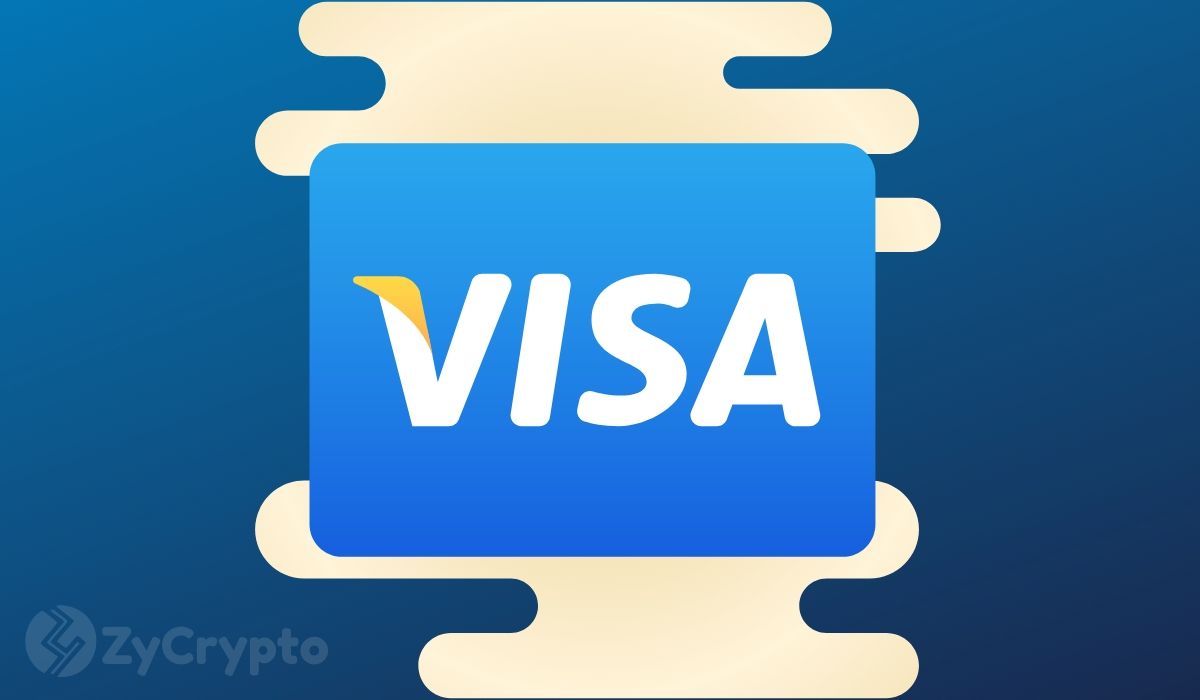Recent times have seen traditional financial companies hedging their bets or even fully leveraging blockchain technology. The application and acquisition of patents is how gargantuan companies truly show their fascination in a particular field, and Visa continues to break ground, now having filed a patent application in the blockchain space, one for developing a digital currency.
Visa’s Grand Designs For The Digital Currency With Blockchain Technology
Credit card giant Visa has applied a patent for a computer-implemented system for creating a digital currency on blockchain -the underlying technology that powers the world’s leading crypto, bitcoin.
According to documents made public on May 14 by the US Patent & Trademark Office (USPTO), Visa seeks to develop a system that makes it possible to create a digital currency of any fiat currency, including the US dollar, the euro, yen, and essentially any other physical currency.
Visa’s patent filing is entitled “Digital Fiat Currency” and was entered into the record this week but was initially filed on November 8, 2019. It lists the applicant as Visa International Service Association in San Francisco, California, and cites the inventors as Simon.J Hurry and Alexandre Pierre.
The patent describes a system for a central entity computer that will receive requests for digital currencies, and these requests will include a serial number and the denomination of the physical currency. The central entity computer will then create the digital currency according to the serial number and denomination details that were provided.
The creation process will entail recording the digital currency on a blockchain. The central entity computer will then initiate the complete removal of the physical currency from circulation in a fiat money system.
The filing quips that a ‘central entity’ in this case could refer to “an entity that regulates something. A central entity may be a central bank, which regulates a monetary supply. A central entity may implement a monetary policy and issue currency. A central entity may maintain exclusive rights to create and destroy currency in a region such as a nation. A central entity may be associated with a government of such a region.”
Visa’s patent also proposes to associate the digital currency with a digital wallet using a private key stored on the digital wallet. Alternatively, the patent proposes the storage of the private key of the digital wallet on a chip of a smart card.
The document describes blockchain as:
“A plurality of blocks, at least one block, of the plurality of blocks, storing data for a plurality of transactions, the plurality of transactions including a second record recording the removal of the physical currency from circulation.”
Notably, the patent mentions Ethereum a couple of times, suggesting that the world’s most valuable altcoin could be included in the overall design of the system.
Visa’s History With Crypto/Blockchain Technology
Like most financial companies, Visa is slowly opening the door to blockchain and digital assets. The firm has been studying the technology for a while now and has already dipped its toes into the industry -one way or another.
For instance, Visa was one of the founding members of Facebook’s Libra Association before pulling out of the project in mid-October last year. Additionally, sometime in February of this year, Visa granted its principal membership to the first-ever crypto firm, Coinbase exchange. As such, Coinbase is now allowed to issue cards to other crypto companies, on top of allowing users to spend their crypto as cash wherever a Visa card is accepted.
The latest patent provides yet another evidence of the mounting interest in blockchain technology and digital currencies.







